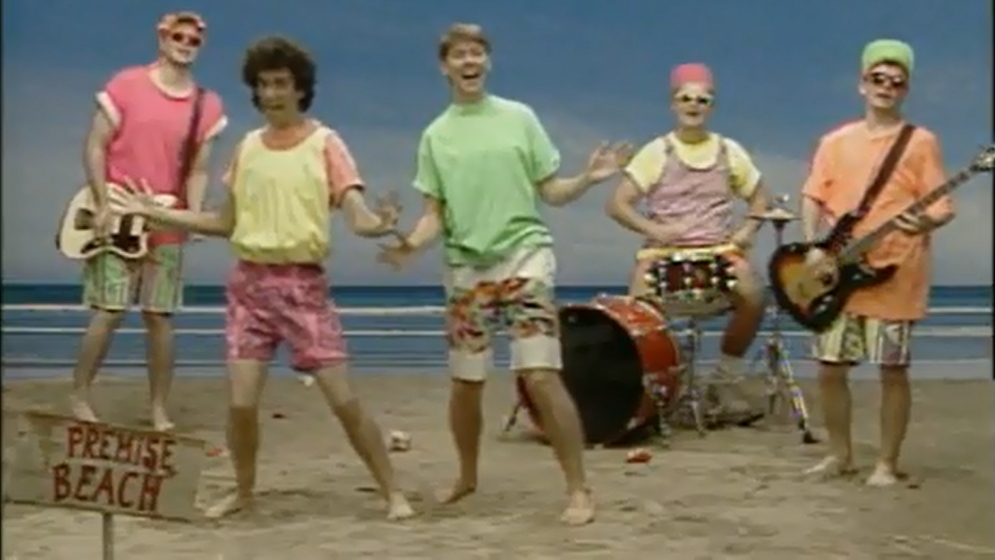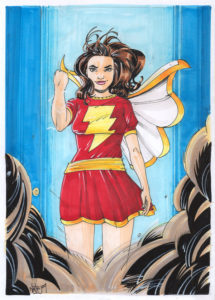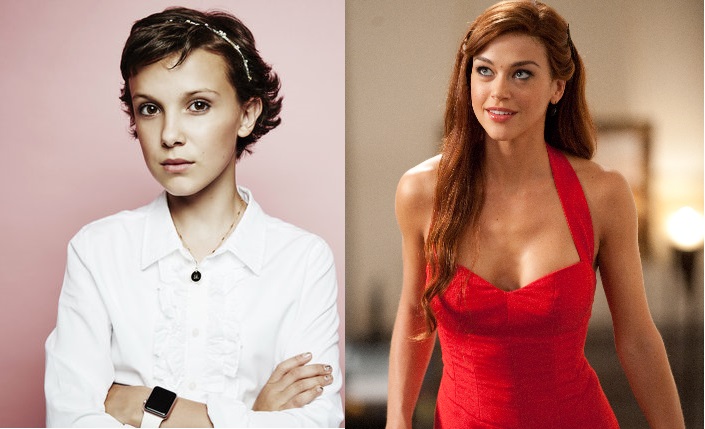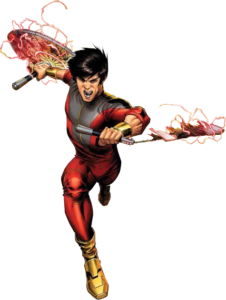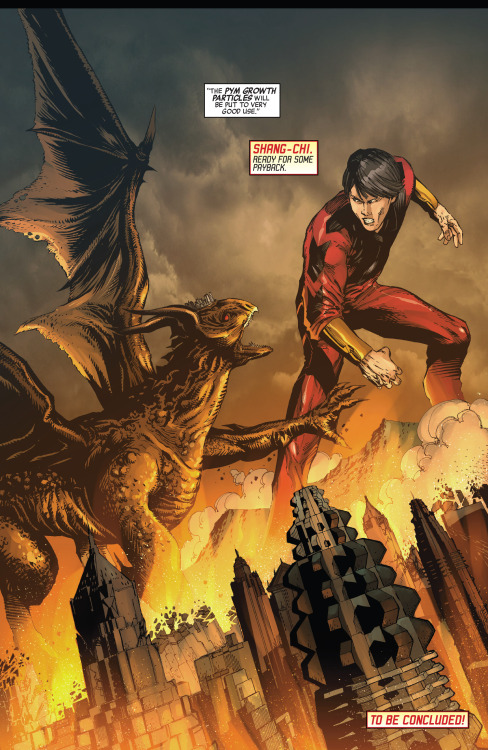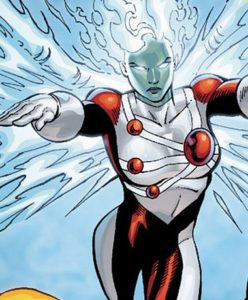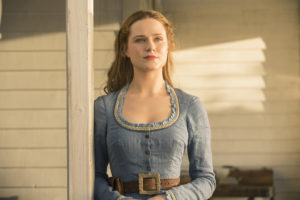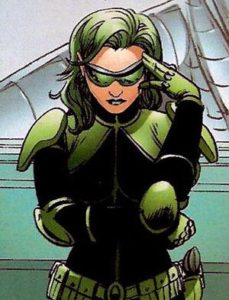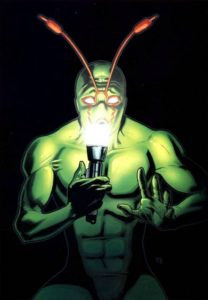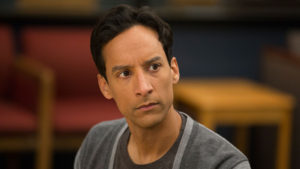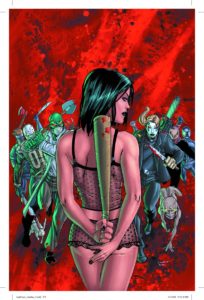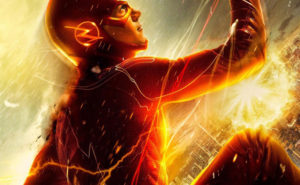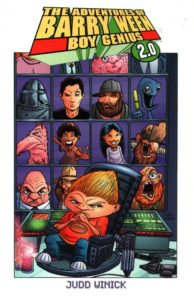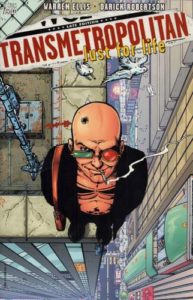When I need background noise while writing, more often than not I turn to The Office. And rewatching a show as often as I have means you have thoughts and opinions.
These are mine.
The Road to Farewell
The one, true, key episode of season seven is Goodbye Michael. A year after announcing that the show’s one main star and central character, Steve Carell, would be moving on, the staff of Dunder Mifflin said an emotional farewell to their insensitive, loving, sometimes awful, sometimes pretty OK boss Michael Scott, as Michael left Dunder Mifflin and Scranton to move to Colorado with his one great love, Holly Flax.
Much like the Michael Scott Paper Company arc two seasons back, it would be easy to think Michael’s departure arc started when Michael announced his intention to move away three episodes earlier. And again, you’d be wrong. There’s a lot of ground to cover before Michael’s ready to jet off to his own blue heaven.
Now we’re not going to get into whether or not Michael deserves a happy ever after. It’s been seven years, at this point you’ve either learned to see past Michael’s faults or you haven’t. And if you haven’t you might not have made it this far. So no, we’re just looking at what needed to happen to get Michael to a point where he was ready to leave the company that was his home and that staff that were his family behind. The path begins in the season premiere, and runs right up until Garage Sale, when Michael makes his choice.
In the season premiere, “Nepotism,” the annual “how was your summer montage” reveals that the new and inept intern everyone hates is Michael’s nephew, who he has hired in an attempt to reconnect with his half-sister and her family.
Notice how this is the first time we’ve ever heard of Michael having a half-sister? Or a nephew? Or relatives other than his mom and step-dad (his father having walked out a long-ass time ago)? Notice how other than two phone calls to his mother and a failed attempt to get his grandmother to invest in his paper company, he seems to have no interaction with his family at all? That’s the key. That is why he is. Michael tries to force Dunder Mifflin into being a family because most of his own flesh-and-blood family rejected him.
Other key steps… in “Sex Ed,” an ingrown hair that an easily swayed Michael gets convinced is herpes causes him to revisit all of his relationships from the past six seasons. Encouraged by Dwight to inform all of his lovers that he may have given them herpes, he calls Holly. But after an actually sweet moment, she claims that they never had the deep, pure love he thought (I mean, you can see where she’s coming from, she and Michael dated for a week whereas she and her new boyfriend AJ have been together for two years), and he tends to over-romantacize. This causes Michael to use the herpes informing quest as an excuse to reexamine his relationships with Jan, Carol, and Helene to see if he really does blow these things out of proportion. And in so doing, he sees his past loves for the dysfunctional messes they were, and realizes he does, in fact, over-romanticize his relationships… but not Holly. Never Holly. The exercise only reinforces his belief that she’s the one great love of his life.
In similar terms, Christening brings Michael face to face with another unpleasant reality: that for all of his attempts to make Jim and Pam part of his family, he still isn’t part of theirs. Much like their wedding last year, Michael ensures that the entire staff turns up for baby Cece’s christening, only to be a) told he can’t sit in the family section, and b) made to say out loud that he understands that he is not, in any way, Cece’s godfather. (Pam tries to be as kind and apologetic about it as she can, but will settle for nothing less than hearing him say the words “I am not the godfather…” also, they met Cece’s actual godparents at a Mommy and Me class? Do Jim and Pam not have friends and siblings?) Being faced with this cuts deep enough that when the people of… whoever’s church this is… Jim? Pam? Is Pam Catholic? Neither of them strike me as Catholic… Anyway, Michael gets caught up in the church community spirit enough that he briefly joins a youth mission heading for Mexico (as does Andy, in an attempt to impress Erin, I’ll come back to that), which goes about as well as you’d expect.
As to more minor stuff. In Counselling, Michael and Toby finally go 12 rounds. Costume Contest allows Darryl to sound off about how poorly Michael’s treated him. Viewing Party challenges his view of himself as the office father figure when everyone starts deferring to Gabe (of all people) over him… only to see that lifetime foster kid Erin legitimately sees him as a surrogate father. In WUPHF.com, Michael comes to terms with his relationship with Ryan being more one-way than he believed.
And then in Classy Christmas, Toby leaving to serve on the Scranton Strangler jury (told you he had a role to play) brings Holly back. Once they get back together, Threat Level Midnight lets him see that Holly is more important than his dreams of making movies (and that the movie he’s been filming with his coworkers and other associates… a wonderful parade of past characters… is actually really, really bad), and Todd Packer provides the final “Michael sees a relationship for what it is” plot, as Holly opens his eyes to the fact that Todd Packer is not the friend or comic genius Michael thinks.
And then there’s nothing left but the farewells. Some are funny, some are incredibly touching, and one is silent, as Pam says her goodbye right after the Documentarians said theirs, reclaiming Michael’s mic pack. (Leading to a silent, goodbye “That’s what she said.”) And when we’re done… well, there’s a bit of a hiccup.
When We Fail to Plan
There isn’t really a concrete succession plan for Michael Scott. Story-wise, there kind of is, as Training Day introduces us to Will Ferrell as Deangelo Vickers, Michael’s impending Sabre-appointed replacement, but one episode after Michael leaves, a head injury sends him packing. Dwight gets appointed acting manager when Jim turns the job down, Creed of all people takes his place when he bungles it. But as for a long-term replacement? Nobody knew.
And I am including the producers in this.
The two-part season finale, Search Committee, ends with the titular committee (Jim, Toby, and Gabe) still not having chosen a new manager. It’s kind of a weak-sauce cliffhanger, because the only reason it’s happening is that the producers hadn’t picked one yet. And really, there is just no excuse for that. Steve Carell announced he was leaving a year earlier, so that the impending return of Holly was teased in the season six finale. So how is it possible that by the end of the season, four episodes after Michael left, nobody knows who the new boss is?
The way it certainly appears, and the way it’s often been reported, is that the producers used Search Committee as a kind of audition. It was filled with big name guest stars, some of which were just there as a lark, some of which were serious candidates to replace Steve Carell. So the producers used this episode, and fan reaction to it, to test-run some potential new managers.
The problem with this is that actors of the caliber they were looking for tend to make other plans if you don’t act fast.
Will Arnett was said to be the first choice, and why wouldn’t he be. His character claims to have a three part plan to rebuild the company, but refuses to share anything more than one small subsection of part two (“Colour code said documents”) until he’s hired. But by the time the producers decided they wanted to hire him, a pilot he’d shot got picked up for that fall (an utterly forgettable show called “Running Wilde,” only occasionally elevated by genuinely funny performances by Arnett, Peter Serafinowicz, Mel Rodriguez, and recurring guest star David Cross), so he was out.
Second pick was British comedian and former Doctor Who companion Catherine Tate as Nelly Bertram, a friend of Jo Bennet whose interview was as filled with confidence as it was devoid of meaningful content. Tate was already booked to do Much Ado About Nothing in London with David Tennant, from before season eight was supposed to start filming until a week before my visit to London that year. God DAMN it. So she was out… for a while. Stick around and she’ll be back.
There were also three internal candidates: Dwight, Andy, and Darryl. Dwight’s desperate attempts to get back in consideration after being removed from the position in the previous episode are mostly played for laughs, but… there was (to me) a confusing amount of support for the idea. Reviewers, some fans, even Mindy Kaling backed Dwight. And I was just… forget how bad he was at this job in season three, we just did an episode proving he is still utterly, laughably unsuited to any amount of legitimate authority. It’s especially weird to hear writer/producer/cast member Mindy Kaling in support. I mean, was she just not on set that week? Did she miss the writers’ room saying “Let’s do an episode proving that Dwight is still bad at management?”
But the one to watch is James Spader as Robert California. His scary, almost cult-like confidence won more discerning minds over pretty quickly.
Relationship Dramas
Everything is hunky-dory for Jim and Pam this season. Pam secures herself a new job basically by inventing it and claiming she’s had it for months now. And Jim… is present? I don’t think they actually have any major arcs this season.
Angela and Dwight, on the other hand. At the end of season six, Dwight decided he wanted a child, and recruited Angela to mother it. With a contract and everything. But having decided that Pam’s friend Isabel, who he’d hooked up with at the wedding, is a superior specimen, he tries to back out of the deal. Leading to the most Dwight and Angela reunion possible… a legal dispute over their contract ends in them agreeing to have sex to completion on five occasions (an agreement the arbitrator desperately tries not to be present for). As the season opens, Angela is trying to leverage their contractually mandated intercourse to rekindle romantic feelings, as any normal person would in this very common scenario. But eventually Dwight’s disinterest takes a toll, just in time for a new player to arrive… Heroes’ Jack Coleman as The Senator, aka State Senator Rob Lipton.
On the one hand, Angela’s new romance with The Senator (as she insists on calling him at all times) makes her more insufferable than ever, as she is absurdly tacky in her eagerness to throw around her new life as a politician’s girlfriend/fiance, despite Oscar’s habit of swiftly pointing out he’s only a state senator, which is far less impressive. For a time (before Oscar gives up on it), “State Senator” is the new “Assistant to the regional manager.” But on the other hand, Angela’s comeuppance is swiftly written into the arc… upon actually meeting him, Oscar notices that The Senator is secretly gay. (Something Ryan is swift to back up, citing “He liked my Facebook photos at 3 AM.”)
So basically, Angela becomes a monster of smugness and condescension unlike ever before, but at least her amazing new life is a sham, and you know it’s going to blow up in her face eventually. The only issue is that the fuse is pretty long.
Meanwhile… Andy and Erin hit a road bump when Erin found out about him and Angela. And I guess she never got over it, because when the season kicks off, she’s with Gabe.
Erin and Gabe. What can a person say about Erin and Gabe, other than you have to wonder if the writers looked at Erin and Andy, asked why they weren’t on the level of, say, Jim and Pam, and decided the answer was “They never had a Roy.” Erin and Gabe don’t make a lot of sense as a couple. Or any sense. They don’t have chemistry, their interests don’t really overlap, they’re never super believable, their first date story is a textbook case of sexual harassment. “Thank god he’s my boss,” says Erin, “Because I wouldn’t have said yes to dating him if I didn’t think I had to.” How little are we supposed to be invested in them as a couple? Look to one of Gabe’s talking heads: “Yes, we are still together. Why do you always ask me that?” Or when Jim and Pam catch Erin eating lunch in her car to avoid spending time with her boyfriend, and Jim taps out, leaving Pam to deal with Erin. “You’ve got this,” he says to Pam, before telling the cameras “I’m sorry, that… just wasn’t interesting to me.” You speak for us all, Jim.
No, Gabe and Erin… while nowhere near as toxic a couple as Angela and Andy, because no couple could be this side of Jessica Jones and Kilgrave (and I had to think about that one, that’s how messed up Angela and Andy were)… are not a couple you root for, sympathise with, or even understand. They exist so that Andy can try to win her back. Only to give Andy his own Karen Filipelli in his new girlfriend (thanks to a party invite from Darryl), so that when Erin decides it’s Andy she loves, they still don’t get together.
Works on paper, right? Worked for Jim and Pam, could work again? Sure, except no. No it doesn’t. Because I’m just going to warn you, this isn’t going anywhere worth reaching. Erin and Andy aren’t a perfect couple, or even a good one. Their relationship is a time-filler, a B-plot the writers will eventually lose interest in.
But that’s a ways away yet.
Key episdoes
I mentioned the key episodes of the Goodbye Michael long game. Andy’s Play is a fun one for musical fans. Skip nothing between Classy Christmas and Goodbye Michael, because you can’t afford to miss a Holly episode.
Michael’s Last Dundies is a great one. There are a lot of annual events at Dunder Mifflin that the Documentarians only bother to capture once. We see all but one Christmas party, and a handful of Halloweens, but we only see one company picnic, one beach day, one birthday party for Michael, one inventory, and until now, only one Dundie Awards. But for Michael’s penultimate episode, we take our second and final trip to the Dundies, as Michael tries to coach Deangelo on how to run the event in his absence. That his approach is lifted from The King’s Speech, one of the decade’s more forgettable best picture winners, does not age super well, but other than that, killer episode with a surprisingly emotional conclusion.
Skippables?
I’m not crazy about China, in which Michael successfully proves Oscar wrong about the Chinese economy, leading to a political knowledge showdown, and Pam (as office administrator) and Dwight (as the new owner of the building) clash over Dwight’s draconian money saving policies. Which… can we add this episode to the list of “episodes that prove Dwight was in no way capable of being the new manager, Mindy Kaling?” Dude goes mad with even a small amount of power, why would anyone… but I repeat myself. Anyway. Not crazy about that one.
Notable guest stars?
In addition to Will Arnett, Catherine Tate, and James Spader, Ray Romano, Jim Carrey, and Warren Buffett turn up as applicants for Michael’s job.
When Ricky Gervais, creator and star of the British original, was in town to host the Golden Globes, the producers saw an opening, and filmed a cold open crossover, in which Michael Scott meets David Brent. David Brent returned in Search Committee, having filmed an application for Michael’s job. They make for two cute homage cameos.
Kathy Bates makes her final appearances as Jo Bennett this year. She was missed. That makes it sound like she died… she didn’t. She didn’t die. She’s just busy and expensive.
In addition to Melora Hardin and Nancy Carell returning as Jan and Carol in Sex Ed, Rashida Jones (Karen), David Denman (Roy), David Koechner (Todd Packer) Melora Hardin, and others all return for Threat Level Midnight, to reflect the fact that Michael’s been filming this on and off for five years.
And Timothy Olyphant makes two appearances as Danny Cordray, a rival salesman who also has a history with Pam.
New characters
Robert California and Nellie Bertram are introduced in season eight, and we’ll be seeing more of them, but more significant to this season is Dwight’s new handyman, Nate. With Michael Schur busy running Parks and Recreation, Dwight’s cousin Mose couldn’t be his inept right hand very often, so a new henchman was required. Nate is somewhat clueless, but endearingly earnest and affectionate, making him a perfect henchman for Dwight without also making him one of Dwight’s equally crazy and aggressive friends. He never makes it into the full ensemble, but he’s reliably funny when he does turn up.

